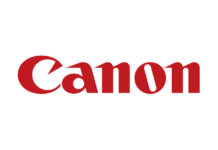
Taylor Blanchett-O’Donnell is keeping her family’s legacy in the sign industry by becoming the fourth generation to work at custom sign company Blanchett Neon in Western Canada. In her role as corporate services manager at Blanchett Neon, she is responsible for business development, health and safety, brand presence, and strategic direction. She also works alongside senior management to develop, demonstrate, and execute the company’s vision of excellence.
Taylor says being named to the International Sign Association Elite class of 2018, as well as serving as one of the founding members and the current president of the Young Professionals Network, a division of the Sign Association of Canada, are some of her most noteworthy accomplishments to date. She is also an active member in both the Alberta and national sign associations.
We spoke with Taylor for further thoughts about the younger generation and its role in the sign industry.
What are some of the biggest challenges you’ve found related to younger sign makers in the sign industry? How have you managed to solve these challenges on your own end?
The first (and biggest) challenge is actually informing those young, eager workers about the sign industry as a viable career option. It isn’t that our industry is dying or unattractive in principle, I truly feel that people just don’t know it is an available choice for them. Whenever I have the chance to talk with young workers looking to enter the workforce about the sign industry, the most common response is, “I had no idea this was even an option,” or, “I didn’t know so many different roles went into making a sign!”
The sign industry is at an important crossroads—a lot of shops generally have an older workforce and introducing younger staff can be challenging to the status quo. It is really critical to put in the effort to make this transition as transparent as possible—ensuring that you are hearing the concerns of your existing staff, while not limiting or stifling the energy of the younger workers.
Why do you feel the sign industry is an attractive career for you?
In today’s world, young people are looking for a career that is not only interesting, but also offers opportunities for growth and advancement—somewhere where they can make a difference.
With many sign shops being small, independent businesses, there is often less bureaucracy that might stand in the way of advancement or trying out different positions. If you enjoy working with people, sales and project managers are essential. If you enjoy working with your hands, production or installation might be a great fit.
There is no better feeling than driving past a sign you had the opportunity to work on, be that through sales, design, project management, fabrication, or even installation—the possibilities are truly endless to leave your mark in this industry.
How do you think the sign industry should be recruiting other younger people to join?
The easiest way to start is by being actively involved in your local community—from construction and trade associations to young professional and networking groups, the easiest way to “get the word out” is to be present and actively engaged with potential job seekers.
When it comes to recruitment, drive and passion are essential. You can’t teach attitude, but you can coach for performance. We have also found success in making the conscious decision to hire people from a variety of different backgrounds. As a niche industry, a lot of existing signage workers have been in it for a long time and usually have a preferred way of doing things. By purposefully bringing in individuals with the raw skills to do the task (welding, electrical, or graphic design for example), but not necessarily the industry-specific experience, you also bring in new ways of looking at things that might not have been considered otherwise.
What have you learned about the sign industry from your experiences so far?
The biggest thing I have learned is the importance of being a sponge – absorbing as much information about as many areas of the industry as you can. With most sign projects being custom, one-offs, you never know when that one experience or situation will come in handy to solving a problem down the line.
I personally have found the greatest success in surrounding myself with the best people from a variety of backgrounds, that all bring something unique to the proverbial table. No one person can do it all, so know your strengths, know the strengths of your teammates, and how you can complement and uplift one another to find the best results.










